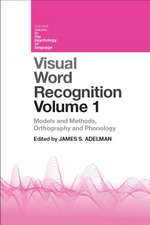Semiotics of Programming
Autor Kumiko Tanaka-Ishii PhDen Limba Engleză Paperback – 21 mar 2010
| Toate formatele și edițiile | Preț | Express |
|---|---|---|
| Paperback (1) | 299.93 lei 6-8 săpt. | |
| Cambridge University Press – 21 mar 2010 | 299.93 lei 6-8 săpt. | |
| Hardback (1) | 460.24 lei 6-8 săpt. | |
| Cambridge University Press – 21 mar 2010 | 460.24 lei 6-8 săpt. |
Preț: 299.93 lei
Nou
Puncte Express: 450
Preț estimativ în valută:
57.40€ • 62.33$ • 48.21£
57.40€ • 62.33$ • 48.21£
Carte tipărită la comandă
Livrare economică 22 aprilie-06 mai
Preluare comenzi: 021 569.72.76
Specificații
ISBN-13: 9780521736275
ISBN-10: 0521736277
Pagini: 228
Ilustrații: 55 b/w illus. 4 tables
Dimensiuni: 151 x 229 x 10 mm
Greutate: 0.3 kg
Editura: Cambridge University Press
Colecția Cambridge University Press
Locul publicării:New York, United States
ISBN-10: 0521736277
Pagini: 228
Ilustrații: 55 b/w illus. 4 tables
Dimensiuni: 151 x 229 x 10 mm
Greutate: 0.3 kg
Editura: Cambridge University Press
Colecția Cambridge University Press
Locul publicării:New York, United States
Cuprins
1. Introduction; 2. Computer signs in programs; Part I. Models of Signs: 3. The Babylonian confusion; 4. Marriage of signifier and signified; 5. Being and doing in programs; Part II. Kinds of Signs and Content: 6. The statement x := x + 1; 7. Three kinds of content in programs; 8. An instance vs. the instance; Part III. Systems of Signs: 9. Structural humans vs. constructive computers; 10. Sign and time; 11. Reflexivity and evolution; 12. Conclusion.
Recenzii
“Semiotics is an important and fascinating area of study which is fundamentally concerned with how meanings are expressed and interpreted through the use of communication systems, such as human languages and computer-programming languages. Semiotics of Programming represents a welcome and significant contribution to this field. The book is of potential interest not only to specialists in semiotics, who will find in it an instructive and thought-provoking discussion of the application of key semiotic concepts to the understanding of programming languages and program texts, but also to readers with a background in computing, who have a particular interest in the semantics of programming languages and in the capabilities of computing systems. The author presents a well-researched work on an intellectually challenging subject, while taking care to provide the reader with helpful explanations and illustrations of essential concepts. The interdisciplinary approach adopted by the author is commendable, and the book as a whole shows the benefit of bringing a semiotic perspective to bear upon the study of computation.”
--John H. Connolly, Loughborough University, UK
“As a theory of representation and, thus, of how the human mind models the world through semiosis, the production of signs, semiotics has provided truly remarkable insights into the human condition throughout the ages. This brilliant book takes the semiotic purview one step further, assessing and developing it through the template of computer science, which entails a particular kind of controlled semiosis. This allows Kumiko Tanaka-Ishii, a brilliant semiotician and programmer, to examine semiosis in accurate ways. The result is truly insightful, for both semioticians and computer scientists. But the book goes well beyond these disciplinary domains. It is required reading for anyone interested in how the mind works.”
--Marcel Danesi, University of Toronto
“Semiotics of Programming is a monumental work in computational semiotics and a most-welcome contribution to the field of semiotics. The observations contained in this book go well beyond programming languages to address all semiotic systems, including natural language. The careful and clear writing style, combined with a concise glossary, makes this highly important work accessible to the widest possible audience. It will be of great interest and enormous benefit to all researchers and students who are interested in signs and languages, irrespective of their backgrounds.”
--Kyo Kageura, University of Tokyo
"...this book provides a very well-written and stimulating account of the foundations of semiotics. It illuminates the discussion with a well-chosen set of examples taken from the programming domain, putting the foundations of computing science to work in another discipline entirely."
--Simon Thompson, University of Kent Canterbury, United Kingdom , Computing Reviews
"Tanaka-Ishii has written a valuable, thorough, and thought-provoking book and her analyses are perceptive and well-considered. Semiotics of Programming is undeniably valuable and offers a great deal of fodder for contemporary philosophical debates in the study of semiotics."
George Lazaroiu, Linguistic and Philosophical Investigations
"....Ultimately, Semiotics of Programming is an expansive and useful book for cognitive technologists. The book functions at one level as a very good primer and introduction to both semiotics and the basic theories of computer languages. On a deeper level, the book explores the notion of self-reference as a key mechanism in the process of the production of meaning by both computers and human beings.... Tanaka-Ishii’s work represents the type of interdisciplinary research, both theoretical and applied, that can inform a great deal of work being done in cognitive technology, from the construction of HCI interfaces and natural language systems to the design and development of robotics. The text, while intellectually demanding of its readers, explores new territories in the spaces that exist between languages of the human and non-human variety. As such, it is a valuable contribution to the field of semiotics and a useful addition to the bookshelves of humanists and technologists alike."
--Rudy McDaniel, University of Central Florida
--John H. Connolly, Loughborough University, UK
“As a theory of representation and, thus, of how the human mind models the world through semiosis, the production of signs, semiotics has provided truly remarkable insights into the human condition throughout the ages. This brilliant book takes the semiotic purview one step further, assessing and developing it through the template of computer science, which entails a particular kind of controlled semiosis. This allows Kumiko Tanaka-Ishii, a brilliant semiotician and programmer, to examine semiosis in accurate ways. The result is truly insightful, for both semioticians and computer scientists. But the book goes well beyond these disciplinary domains. It is required reading for anyone interested in how the mind works.”
--Marcel Danesi, University of Toronto
“Semiotics of Programming is a monumental work in computational semiotics and a most-welcome contribution to the field of semiotics. The observations contained in this book go well beyond programming languages to address all semiotic systems, including natural language. The careful and clear writing style, combined with a concise glossary, makes this highly important work accessible to the widest possible audience. It will be of great interest and enormous benefit to all researchers and students who are interested in signs and languages, irrespective of their backgrounds.”
--Kyo Kageura, University of Tokyo
"...this book provides a very well-written and stimulating account of the foundations of semiotics. It illuminates the discussion with a well-chosen set of examples taken from the programming domain, putting the foundations of computing science to work in another discipline entirely."
--Simon Thompson, University of Kent Canterbury, United Kingdom , Computing Reviews
"Tanaka-Ishii has written a valuable, thorough, and thought-provoking book and her analyses are perceptive and well-considered. Semiotics of Programming is undeniably valuable and offers a great deal of fodder for contemporary philosophical debates in the study of semiotics."
George Lazaroiu, Linguistic and Philosophical Investigations
"....Ultimately, Semiotics of Programming is an expansive and useful book for cognitive technologists. The book functions at one level as a very good primer and introduction to both semiotics and the basic theories of computer languages. On a deeper level, the book explores the notion of self-reference as a key mechanism in the process of the production of meaning by both computers and human beings.... Tanaka-Ishii’s work represents the type of interdisciplinary research, both theoretical and applied, that can inform a great deal of work being done in cognitive technology, from the construction of HCI interfaces and natural language systems to the design and development of robotics. The text, while intellectually demanding of its readers, explores new territories in the spaces that exist between languages of the human and non-human variety. As such, it is a valuable contribution to the field of semiotics and a useful addition to the bookshelves of humanists and technologists alike."
--Rudy McDaniel, University of Central Florida
Notă biografică
Descriere
Considers what computers can and cannot do, analysing how computer sign systems compare to humans through a concept of reflexivity.





















